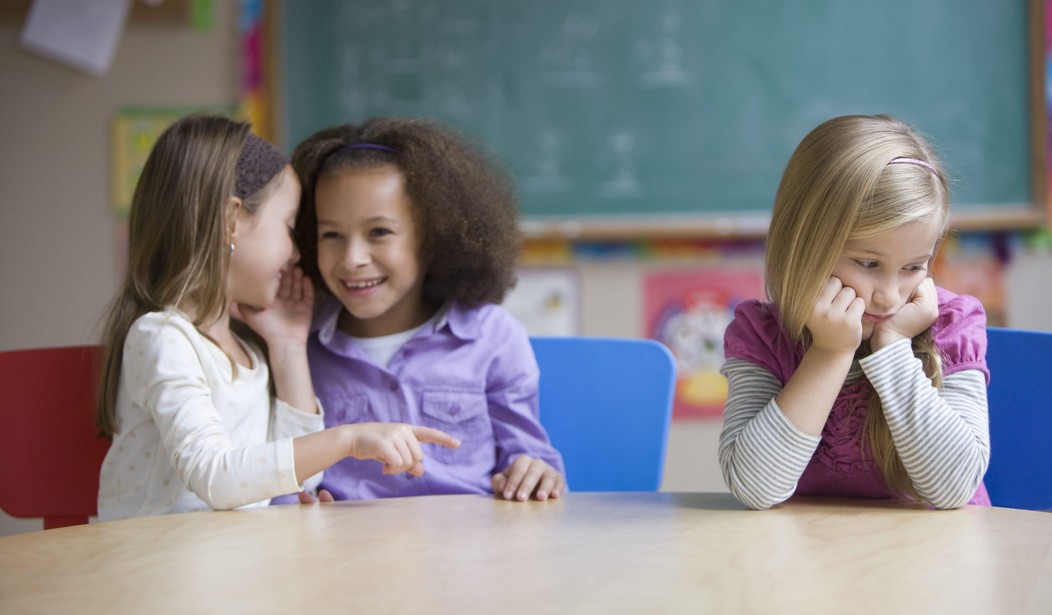When I was a teacher, it was the school’s custom that the adults would call the students “friends.” As in, “Okay, friends, please clean up and come to the rug for read-aloud.” Or, “Line up, friends, it’s time to go to music class.” I guess it was meant to sound, well, friendlier than, say, “class” or (God forbid!) “boys and girls.” And I did it too, the lingo becoming so natural to me that I hardly thought about it anymore.
Now that I’m a mother, I find myself calling any other little kids my son hangs out with his “friends.” All his classmates at preschool are his “friends.” Anyone who comes over for a play date (whether we’ve met them before or not) is “a friend.” Even a random kid who comes up to us at the playground and wants to play is “a new friend.”
This seems to be the norm. At least in the circles I travel in. The grown-ups call the kids “friends.” And, in turn, the kids learn to call each other friends. “My friend, Billy” did this, or “My friend, Catherine,” did that. “I have lots of friends!” is a common utterance among the two-year-old set.
But I can’t help but wonder (as I sometimes wondered when I was teaching, also) if all this friendliness is really such a good thing. No, I’m serious. Hear me out. Because, is a person you just met really your friend? What about a person you’ve met a few times but still don’t know very well? And what about (and this is where it becomes really important, I think) someone you actually don’t like at all? Is that person your friend?
We live in a world in which “friend” has actually become a verb. It’s something you do to someone. At least on Facebook. And, in that sense, it actually bears a striking resemblance to the way I, and the other moms I know, are using it when we say it to our children. It’s a term so broad that it could encompass anyone from someone you’ve known since birth and love dearly, to a person you met once at a party, and will never see again. In the Facebook sense, a “friend” could be someone you love or someone you actually don’t know at all.
But a “friend,” according to the dictionary at least (which I usually find is a good place to figure out what things mean, though I may be in the minority on that one), is “a person attached to another by feelings of affection or personal regard.” As in, someone you like. But my son certainly doesn’t like all his “friends.” And my students didn’t like all their “friends” either. Do I like all my friends on Facebook? I don’t even know some of them!
I recognize, of course, that there is another, religious, meaning of “Friend” (adopted particularly by the Quakers) arising from Jesus saying, in John 15, “You are my friends if you do what I command.” But this isn’t what I’m talking about now. It isn’t what we mean when we call our students, or our kids’ peers, or our social media acquaintances “friends.”
What we mean, I think, (at least in the context of our kids) is that we hope these other kids and our kids will be friends. They’re potential friends. And that’s very sweet. And we should, of course, continue to create opportunities for our kids to play and interact with their peers, form bonds, and make friends. But are we helping them in this by using the word “friend” interchangeably with “peer?”
There are certain things a friend does. He stands by you and stands up for you. He values you for who you are. He is loyal to you. He enjoys your company. And there are certain things a friend doesn’t do. He doesn’t tease you or make fun of you. He doesn’t suddenly stop being your friend because he doesn’t agree with you, or because other people say you don’t believe the right things. He doesn’t take you for granted.
I want my son to know this. I want him to understand that he doesn’t have to like everyone he meets. He needs to be respectful, but he doesn’t have to like them. I want him to understand that some people aren’t good people. Some people mean him ill. I want him to feel confident in his feeling of connection to some people, and not to others. Because a friend is a good, and important thing for a person to have. And a false friend can be devastating.
I’m not sure what word we should use, instead of friend, when talking about our children’s peers (or our acquaintances on Facebook, for that matter). But I know that (in this, and in general) I don’t want to lose the true meaning of the word. Because “friend” really does mean something. Something worth having.









Join the conversation as a VIP Member